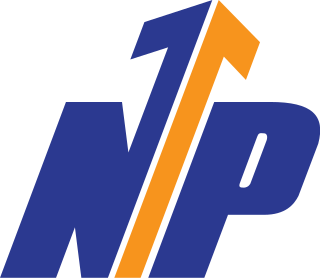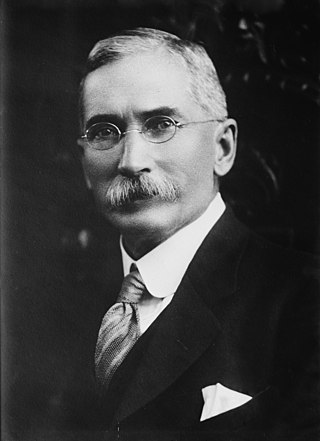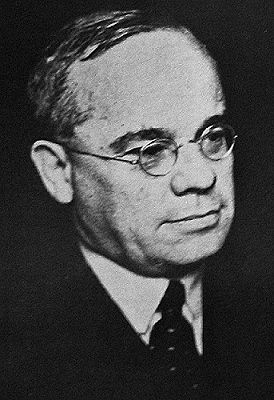Related Research Articles

Field Marshal Jan Christian Smuts, was a South African statesman, military leader and philosopher. In addition to holding various military and cabinet posts, he served as prime minister of the Union of South Africa from 1919 to 1924 and 1939 to 1948.

The Ossewabrandwag (OB) was an Afrikaner nationalist organization in South Africa during World War II, which opposed South African participation in the war. Afrikaners formed the Ossewabrandwag in Bloemfontein on 4 February 1939.

Sir Patrick Duncan, was the sixth Governor-General of the Union of South Africa, holding office from 1937 until his death in 1943.

The National Party, also known as the Nationalist Party, was a political party in South Africa from 1914 to 1997, which was responsible for the implementation of apartheid rule. The party was an Afrikaner ethnic nationalist party, which initially promoted the interests of Afrikaners but later became a stalwart promoter and enactor of white supremacy, for which it is best known. It first became the governing party of the country in 1924. It merged with its rival, the SAP, during the Great Depression, and a splinter faction became the official opposition during World War II and returned to power. With the National Party governing South Africa from 4 June 1948 until 9 May 1994, the country for the bulk of this time was only a de jure or partial democracy, as from 1958 onwards non-white people were barred from voting. In 1990, it began to style itself as simply a South African civic nationalist party, and after the fall of apartheid in 1994, attempted to become a moderate conservative one. The party's reputation was damaged irreparably by perpetrating apartheid, and it rebranded itself as the New National Party in 1997 before eventually dissolving in 2005.

Daniël François Malan was a South African-French politician who served as the fourth prime minister of South Africa from 1948 to 1954. The National Party implemented the system of apartheid, which enforced racial segregation laws, during his tenure as Prime Minister.

The United Party was a political party in South Africa. It was the country's ruling political party between 1934 and 1948.

General James Barry Munnik Hertzog, better known as Barry Hertzog or J. B. M. Hertzog, was a South African politician and soldier. He was a Boer general during the Second Boer War who served as the third prime minister of the Union of South Africa from 1924 to 1939. Hertzog, advocated for the development of Afrikaner culture, and was determined to prevent Afrikaners from being excessively influenced by British culture.

Jan Hendrik Hofmeyr was a South African politician and intellectual in the years preceding apartheid. In his lifetime he was regarded as one of the cleverest men in the country, and it was widely expected that he would eventually become Prime Minister of South Africa. He came from a well-known Afrikaner family; his uncle, also Jan Hendrik Hofmeyr but known affectionately as "Onze Jan" among fellow Afrikaners, was a famous figure in the Afrikaans language movement.
The Cabinet of South Africa is the most senior level of the executive branch of the Government of South Africa. It is made up of the president, the deputy president, and the ministers.
The South African Party was a political party that existed in the Union of South Africa from 1911 to 1934.
Jan Christiaan Smuts, OM was a prominent South African and Commonwealth statesman and military leader. He served as a Boer General duning the Boer War, a British General during the First World War and was appointed Field Marshal during the Second World War. In addition to various Cabinet appointments, he served as Prime Minister of the Union of South Africa from 1919 to 1924 and from 1939 to 1948. He played a leading part in the post war settlements at the end of both world wars, making significant contributions towards the creation of both the League of Nations and the United Nations.
Jan Christiaan Smuts, OM served served as Prime Minister of the Union of South Africa from 1919 to 1924 and from 1939 to 1948. He played a leading part in the post war settlements at the end of both world wars, making significant contributions towards the creation of both the League of Nations and the United Nations.

General elections were held in South Africa on 26 May 1948. They represented a turning point in the country's history, as despite receiving just under half of the votes cast, the United Party and its leader, incumbent Prime Minister Jan Smuts, were ousted by the Herenigde Nasionale Party (HNP) led by D. F. Malan, a Dutch Reformed cleric.

General elections were held in South Africa on 18 May 1938 to elect the 150 members of the House of Assembly. The United Party won an absolute majority.

General elections were held in South Africa on 7 July 1943 to elect the 150 members of the House of Assembly. The United Party of Jan Smuts won an absolute majority.
The Herenigde Nasionale Party was a political party in South Africa during the 1940s. It was the product of the reunion of Daniel François Malan's Gesuiwerde Nasionale Party and J.B.M. Hertzog's breakaway Afrikaner nationalist faction of the United Party in 1940.

During World War II, many South Africans saw military service. The Union of South Africa participated with other British Empire forces in battles in North Africa against Erwin Rommel and his Afrika Korps, and many South African pilots joined the Royal Air Force and fought against the Axis powers in the European theatre.

Nicolaas Christiaan Havenga was a South African politician who served as Finance Minister in the governments of J. B. M. Hertzog and Daniel François Malan.

The Volksparty (VP) was a short-lived South African political party from 1939 to 1941.
Henry Allan Fagan, QC was the Chief Justice of South Africa from 1957 to 1959 and previously a Member of Parliament and the Minister of Native Affairs in J. B. M. Hertzog's government. Fagan had been an early supporter of the Afrikaans language movement and a noted Afrikaans playwright and novelist. Though he was a significant figure in the rise of Afrikaner nationalism and a long-term member of the Broederbond, he later became an important opponent of Hendrik Verwoerd's National Party and is best known for the report of the Fagan Commission, whose relatively liberal approach to racial integration amounted to the Smuts government's last, doomed stand against the policy of apartheid.
References
- ↑ Kruger, D.W. The Making of a Nation: A History of the Union of South Africa 1910-1961. 1969. 193.
- ↑ Wilkins, Ivor (2012). The super-Afrikaners. Hans Strydom, Max Du Preez (New ed.). Johannesburg. ISBN 978-1-86842-535-8. OCLC 817600390.
{{cite book}}: CS1 maint: location missing publisher (link) - ↑ Kruger above. 235.
- ↑ Kruger above. 172.
